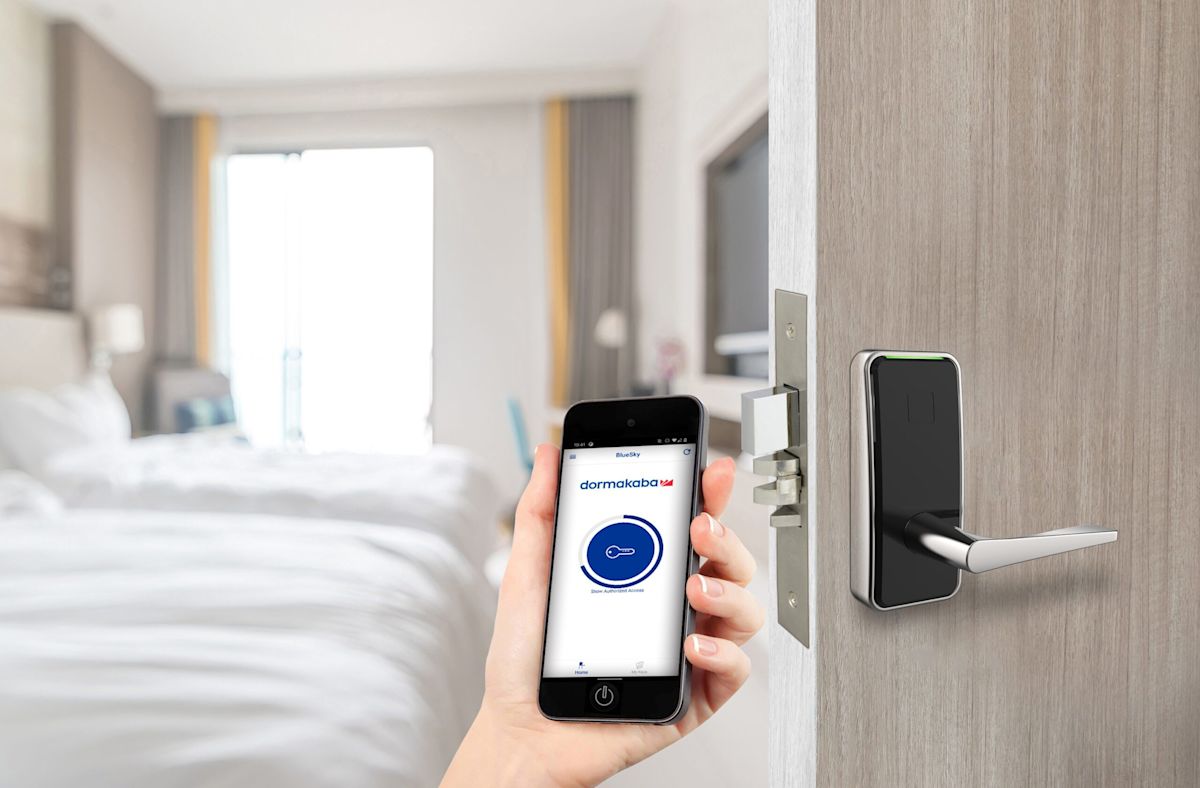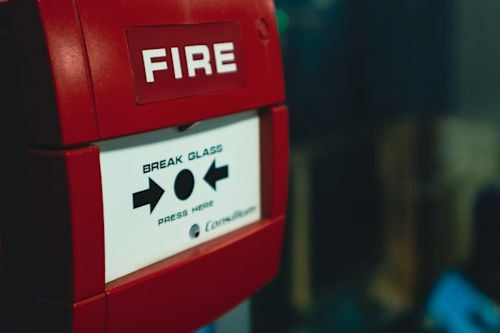
Electronic locks offer a better customer experience within hotels. They allow users to gain autonomy while ensuring the security of access to their room or certain sensitive areas.
What is an electronic lock?
Electronic locks for hotelsare locking devices that secure access points such as doors. They are different from so-called traditional locks, which use physical keys to lock and unlock a door. Electronic locks are made with electronic components to ensure access control.
An electronic lock can include several complementary locking devices:
A keypad or touchpad to enter a PIN code
A card reader
A fingerprint reader
A retinal scanner
Any other biometric opening device
The electronic lock uses an internal mechanism to lock and unlock the door. Most of the time, this is an electric motor integrated into the lock. Depending on the technology, some systems benefit from a remote control device. It is thus possible to open/lock a door from a security PC, a reception desk, or simply from a mobile phone. Mobile access solutions offer customers accessibility to the premises outside of regular hours. Using a smartphone allows secure access with an app, Bluetooth activation, or sending a code to a specific number.
Electronic locks help streamline the customer experience in the hotel environment. They are ideal accessibility solutions for gaining autonomy, proximity, and efficiency.
The advantages of electronic locks for the hotel industry
Hotel complexes can have various characteristics that require the use of an electronic lock system to facilitate the customer experience. The larger a hotel is, the more time it takes for staff to cover the distances. If an access problem is identified, the customer is obliged to wait for a staff member to come.
Unlike a badge, with electronic locks, access points can be managed remotely from a security or reception desk. The deployment of an intercom system allows customers to communicate with a hotel staff member to gain access to a particular area.
The electronic lock offers the possibility toprotect hotel accessfrom the outside. Depending on the structure, staff may not stay overnight on site. It is possible to manage several sites remotely with an electronic locking system. Accessibility can be managed by a remote agent or simply automatically via a card or a keypad.
When hotel complexes offer additional services to their customers, automatic locks provide access only to authorized persons. Customers who should not access the pool or spa, for example, are denied access electronically. Remote controls provide extra security for children who might want to access the pool without their parents’ supervision.
There are multiple models for installing electronic locks in hotels. They combine aesthetics and functionality for an optimal customer experience.
Strengthening the security of a hotel site
In addition to offering easier access management, an electronic lock does not have the drawback of being blocked when a user forgets or loses the key. Codes can be easily changed from a PC interface. In case of loss or theft of keys, it is not necessary to replace all the locks. Furthermore, if a user loses their access card, it is enough to cancel the access granted by the card.
Another advantage of some electronic locks is activity logging. Indeed, it is possible to obtain anaccess log. This is a very useful tool for knowing who accessed certain areas of a complex at a specific date and time. Poorly locked doors can also send a signal to the security PC so that corrective action can be taken quickly.
For a functional and stylish electronic lock system, it is advisable to select a quality provider who ensures installation and maintenance.
Electronic locks offer flexibility in managing a hotel complex. They allow access to certain areas to be restricted and controlled remotely, from a security PC or a reception desk. This is a guarantee of security for customers and staff.



